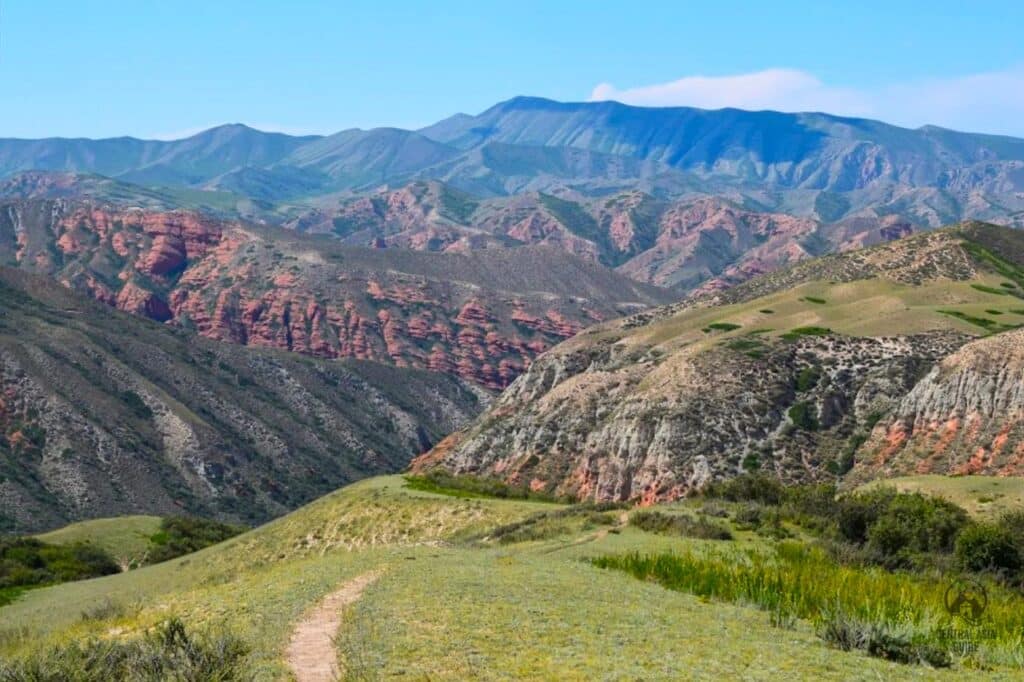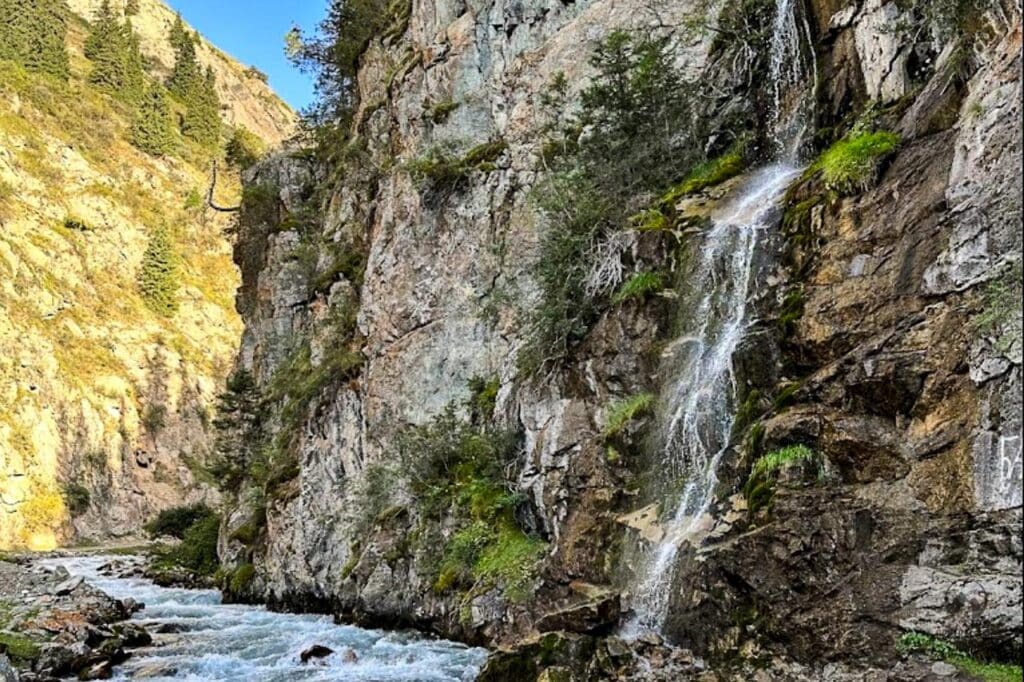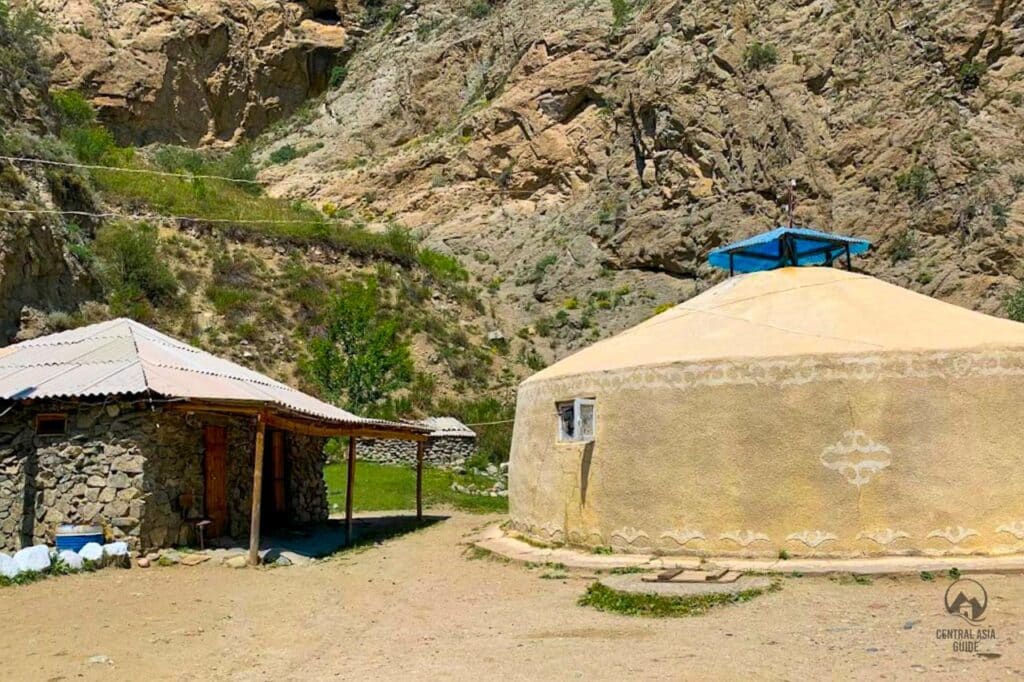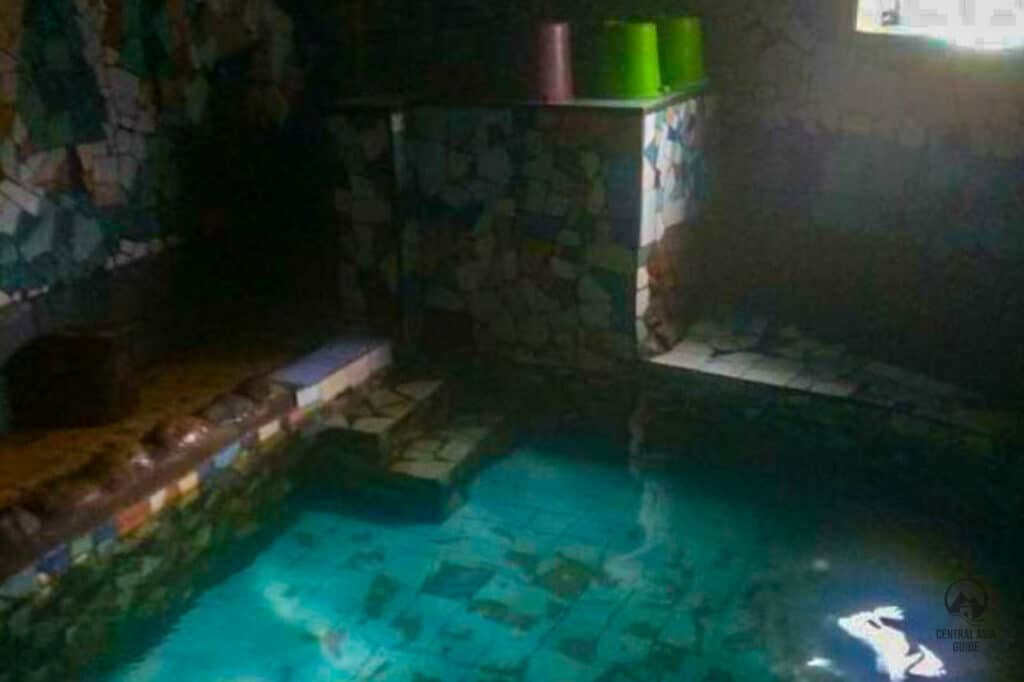Dzhuku Valley
Dzhuku Valley
Dzhuku Valley (also written as Zhuku and Juuku) is the longest gorge on the Terskey Ala-Too Range, popular for its varying nature and beautiful landscapes. The Dzhuku gorge is located on the southern shore of Issyk Kul lake about 70 km along the road Balykchy – Karakol and 17 km to the south towards the ridge Teskey Ala-Too mountains. Nowadays the gorge mainly attracts tourists with its natural beauty, however in the past, it was part of the routes of numerous merchants and travellers.


Juuku Valley in the past
Despite the challenging terrain of the gorge, Dzhuku has long been the only way to get to China from the Issyk-Kul valley. There have been findings of shelters from the ancient Turks, Nestorian Christians, and nomadic Kyrgyz people from several periods. The gorge provides a pass intermountain route to the western part of the Tien Shan. The oldest traces left by hunters from antiquity to the present day are pictures of wild animals inscribed on blackened stones and symbols that are called petroglyphs.
The path through this gorge of reddish rocks leads finally to the city of Ak-Suu in China. Here the caravans of the Silk Road walked along the river, descending from the harsh Bedel Pass and moving through the high-altitude deserts and swamps called syrts, where the famous Kumtor gold mine is now located. In the 7th century, in the valley of the Juuka River was a settlement of Christian Nestorians, immigrants from distant Syria. The Buddhists have also left their signs here, having carved their eternal mantra on a huge stone in the valley. Dzhuku Valley was visited by the famous monk Xuanzang, one of the main heroes of the Chinese legend about Sun-Ukun and it is also described by the famous Russian traveler Petr Semenov-Tyan-Shansky.
Juuku hot spring
Dzhuuku hot spring is known as “Dzhuuku Zhyluu Suu”, which translates from Kyrgyz as Dzhuuku warm water. These indoor hot springs are inside the concrete building in the form of a yurt. There are two separate rooms with a hot spring pool. The capacity of each is about 10 to 15 people and each visitor can bathe for about 30 min but not longer due to the water composition and temperature which is fairly high around 45 C.


Juuku cave
The cave Kyzyl-Unkur in Juuku gorge is believed to be the remains of the fortifications of the Issyk-Kul manap (a representative of the privileged feudal class) Borombay, who lived in the 19th century. The cave received popularity as due to its similarity with the rock in the famous Soviet movie “Ali Baba and the 40 Thieves”.
Sights and Destinations near Juuku gorge
Page updated 10.4.2023